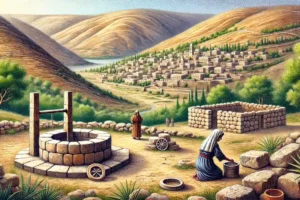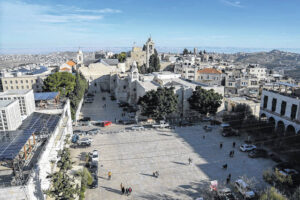
Philippi: A Historical and Biblical Overview
Philippi was an ancient city in Macedonia, notable in the New Testament for its early Christian congregation established by Apostle Paul. Here are some quick facts about Philippi:
- Historical Significance: Originally founded by King Philip II of Macedon, father of Alexander the Great, Philippi was strategically positioned on the main Roman road, the Via Egnatia.
- Biblical Importance: Philippi is best known biblically from the Acts of the Apostles and Paul’s Epistle to the Philippians, written to the Christian community he established there.
- Paul’s Ministry: Paul visited Philippi during his second missionary journey, which is famous for the conversion of Lydia, the seller of purple cloth, and the dramatic incident with the Philippian jailer.
- First European Christian Community: The church in Philippi is considered to be the first Christian community established in Europe.
- Archaeological Site: Modern archaeological discoveries in Philippi provide insights into the early Christian structures, including a likely location for the jail where Paul and Silas were imprisoned.
- Cultural Influence: As a Roman colony, Philippi was a miniaturized version of Rome itself, with Roman architecture and customs that influenced the local populace and the early church.
- Key Events: The city is also remembered for the pivotal Battle of Philippi in 42 BC, where Octavian and Mark Antony defeated Brutus and Cassius, leading to the consolidation of the Roman Empire under Emperor Augustus.
Historical and Geographical Context
Philippi, located in eastern Macedonia near the Thracian border, was founded by King Philip II of Macedon in the 4th century BC. The city was named after him and strategically situated near gold mines, enhancing its economic and military importance. It became a Roman colony after the Battle of Philippi in 42 BC, where Octavian and Mark Antony defeated Brutus and Cassius. This victory marked a significant turning point in Roman history, paving the way for the establishment of the Roman Empire.
Biblical Significance
Philippi holds a special place in Christian history as the site of the first Christian church established on European soil. Apostle Paul’s arrival in Philippi, as recounted in Acts 16, occurred during his second missionary journey, around AD 49-50. His visit to Philippi was prompted by a vision of a man pleading for help, which Paul interpreted as a call to bring the Gospel to Macedonia.
Paul’s Ministry and Notable Conversions
Upon his arrival, Paul and his companions went to a riverside prayer meeting on the Sabbath, where they met Lydia, a dealer in purple cloth from Thyatira. Lydia’s conversion and subsequent baptism represented the first recorded Christian conversion in Europe. The narrative in Acts also details the miraculous events surrounding Paul and Silas’s imprisonment in Philippi. After being arrested for exorcising a spirit from a slave girl, they were miraculously freed from prison by an earthquake, leading to the conversion of their jailer and his family.
Archaeological Insights
Archaeological excavations in Philippi have uncovered significant remains that provide insight into the early Christian community. These include ruins of Roman architecture, such as the forum, theater, and a series of early Christian basilicas, which testify to the city’s importance during the Roman and early Byzantine periods. The traditional site of the jail where Paul and Silas were held has also been identified, though its authenticity is debated among scholars.
The Epistle to the Philippians
Paul’s letter to the Philippians, written several years after his visit while he was imprisoned (likely in Rome), reflects his affectionate and joyful relationship with the Philippians. The epistle is notable for its lack of rebuke, unlike many other Pauline epistles. Instead, it focuses on themes of joy, unity, and Christian humility. Paul praises the Philippians for their support and shares his personal reflections on suffering and salvation, emphasizing the importance of living a life worthy of the Gospel.
Impact and Legacy
Philippi’s role as a cradle of early Christianity in Europe is significant. The story of Paul in Philippi highlights themes of divine guidance, the power of the Gospel to reach across cultural boundaries, and the transformative impact of Christian faith. The historical and spiritual legacy of Philippi continues to attract scholars and Christian pilgrims, reflecting its enduring importance in the Christian tradition.



